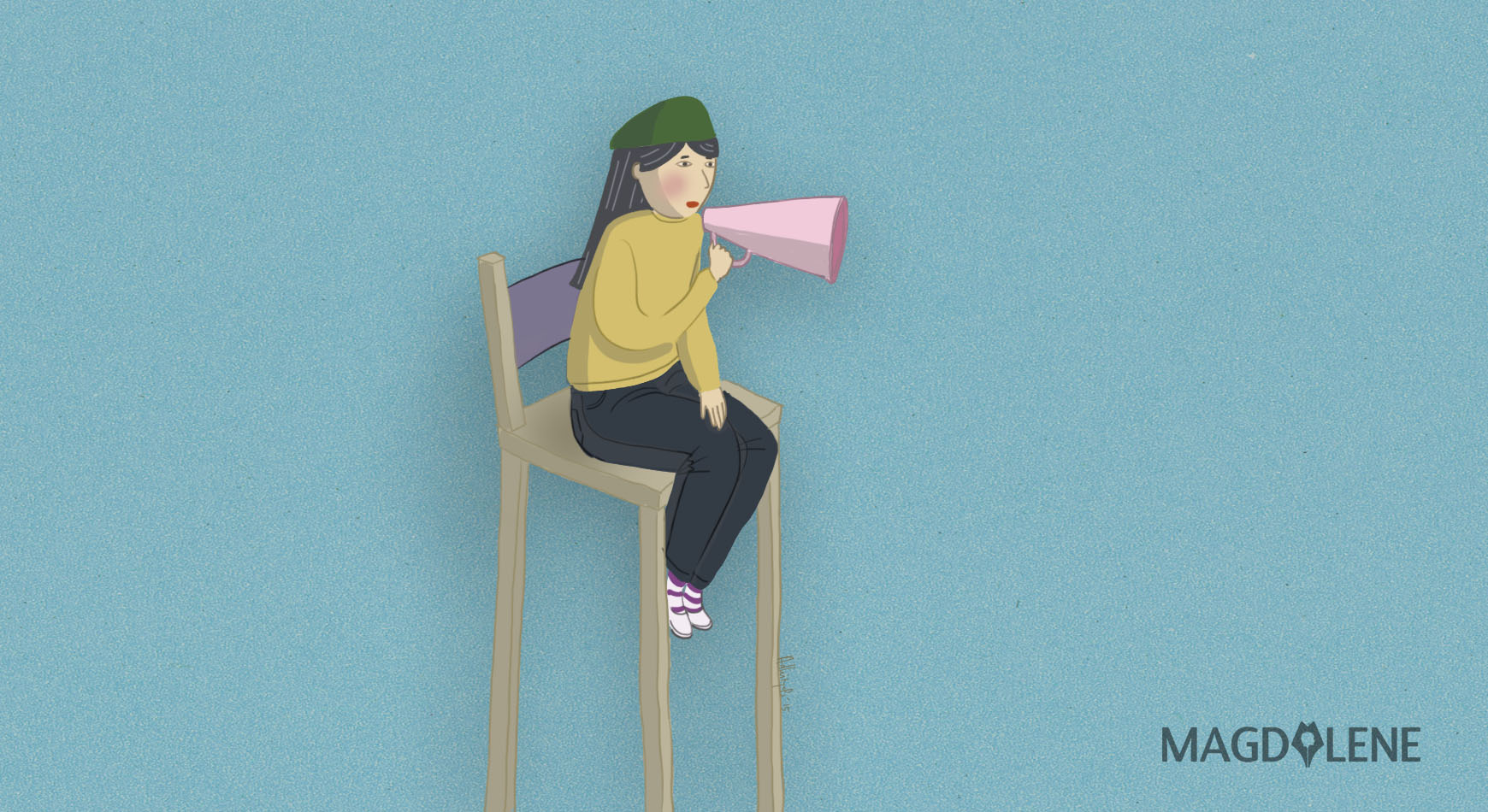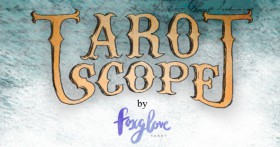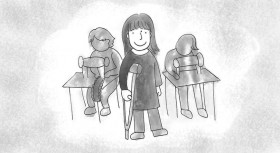Every woman is born with the right to rule her own body, but that’s not how the movies always portray it, particularly Indonesian movies. Fortunately, three recent films chose to be different in conveying this issue frankly.
In September, the University of Indonesia’s cinematography club held its second UI Film Festival (UIFF) with the theme Celebrating Diversity. One of the programs highlighted the role of women in film with the screening of Kisah Cinta yang Asu (Love Story Not, 2015) by Yosep Anggi Noen, Sendiri Diana Sendiri (Following Diana, 2015) by Kamila Andini, and Siti (2014) by Eddie Cahyono.
Siti has won awards at Shanghai International Film Festival 2015 and Singapore International Film Festival 2014, While Following Diana was accepted in the competition category at Toronto International Film Festival, and Love Story Not was screened at the Wide Angle program at Busan International Film Festival early this October.
Siti portrays the hard struggle of a woman living in a coastal area whose husband becomes paralyzed following an accident at sea that made him lost his boat. The family faces mounting debts, forcing Siti to work two jobs as a crackers hawker at the beach and a hostess at a karaoke bar. Her latter choice of work, however, disappoints her husband who then refuses to talk to her. In comes Gatot, a karaoke customer who falls for Siti and asks her to marry him. Eddie Cahyono uses the ocean as the main metaphor of the problems the characters face: it provides livelihood to people, but it can easily snatch everything away from them.
In Following Diana the titular character is a housewife in a household with a similar dynamic as Siti’s. The film revolves around her domestic life, focusing on the hierarchy between men and women. Diana’s husband is polygamous and although she has no choice but to accept, she later chooses not to rely on her husband anymore. So she finds a job to provide for herself and her children.
Love Story Not highlights the life of prostitutes in Yogyakarta, where sex workers Ning and Martha are dating the same man who relies on both women financially.
Empowered Women
Women are often considered creatures who have to be ”pitied on”, who require a lot of affection. This perception has contributed to the social construct supported by religious values that places women “below” men. Moreover, women are seen as less important, both at the workplace and within their family. The reality is women have a wealth of personal strength to overcome limitations, which is what the three films convey.
In Siti, this power is reflected in her character. There is the Siti who perseveres with the family’s hardship; the Siti who chooses to work extra hard by becoming a karaoke hostess, a job that carries a negative social stigma; the Siti who consistently puts on a happy façade in front of her son amid mounting debt; and the Siti who patiently persists with her paralyzed husband.
The defining moment is when Siti asks her husband if he would be OK if she marries someone else. The husband surprisingly says, yes, but Siti is clearly very disappointed by the answer. The consistent theme she conveys is a woman who struggles until the end.
In contrast, Diana grows up in a well-off family. The dilemma lies in her role as a wife who is expected to accept her polygamous husband. Instead of accepted as a religious duty or bemoaned by women like in other Indonesian films, polygamy is shown here as something that has to be rejected by women. Diana chooses to fight by becoming a working mother to prove to herself and others that she has the power to be independent and not to rely on anyone, especially her husband.
The women of Love Story Not are portrayed as more established figures than their male counterparts. Ning shows how women have the power to fight the system that marginalizes them, and Martha opts to finance herself instead of being other people’s dependent. These women prove that women’s place are not below men.
Body Sovereignty
Women’s rights activists work is still far from finished – a long journey still awaits. Above all, it is important to remind women that we must fight for our rights of the thing that is closest to ourselves: our own body. Often we are too caught up in conforming to social norms and values, to be what other people deem as good women – good as in normal, to be like all the others. We fail to respect our innate rights, the freedom to rule over our own body.
The directors of the three films address this issue in an honest manner. It is shown in the choices made by Siti, who uses her freedom over her own body to meet her financial needs, knowing all its social implications. Diana does not allow her body to be controlled by her husband or by the money he gives her. Her body refuses it and wants something else, proving that she has the power to refuse to rely on anybody. Martha shows how women can have full control of their own body, however they want to position it or dress it, and for whatever purposes.
With freedom comes responsibility. As long as we are being responsible and are fully aware of the consequences, we have the right and power over our own body.
Yulaika Ramadhani is actively involved in the Community for Interfaith and Intercultural Dialogue Indonesia. She writes at www.yulaside.com
In September, the University of Indonesia’s cinematography club held its second UI Film Festival (UIFF) with the theme Celebrating Diversity. One of the programs highlighted the role of women in film with the screening of Kisah Cinta yang Asu (Love Story Not, 2015) by Yosep Anggi Noen, Sendiri Diana Sendiri (Following Diana, 2015) by Kamila Andini, and Siti (2014) by Eddie Cahyono.
Siti has won awards at Shanghai International Film Festival 2015 and Singapore International Film Festival 2014, While Following Diana was accepted in the competition category at Toronto International Film Festival, and Love Story Not was screened at the Wide Angle program at Busan International Film Festival early this October.
Siti portrays the hard struggle of a woman living in a coastal area whose husband becomes paralyzed following an accident at sea that made him lost his boat. The family faces mounting debts, forcing Siti to work two jobs as a crackers hawker at the beach and a hostess at a karaoke bar. Her latter choice of work, however, disappoints her husband who then refuses to talk to her. In comes Gatot, a karaoke customer who falls for Siti and asks her to marry him. Eddie Cahyono uses the ocean as the main metaphor of the problems the characters face: it provides livelihood to people, but it can easily snatch everything away from them.
In Following Diana the titular character is a housewife in a household with a similar dynamic as Siti’s. The film revolves around her domestic life, focusing on the hierarchy between men and women. Diana’s husband is polygamous and although she has no choice but to accept, she later chooses not to rely on her husband anymore. So she finds a job to provide for herself and her children.
Love Story Not highlights the life of prostitutes in Yogyakarta, where sex workers Ning and Martha are dating the same man who relies on both women financially.
Empowered Women
Women are often considered creatures who have to be ”pitied on”, who require a lot of affection. This perception has contributed to the social construct supported by religious values that places women “below” men. Moreover, women are seen as less important, both at the workplace and within their family. The reality is women have a wealth of personal strength to overcome limitations, which is what the three films convey.
In Siti, this power is reflected in her character. There is the Siti who perseveres with the family’s hardship; the Siti who chooses to work extra hard by becoming a karaoke hostess, a job that carries a negative social stigma; the Siti who consistently puts on a happy façade in front of her son amid mounting debt; and the Siti who patiently persists with her paralyzed husband.
The defining moment is when Siti asks her husband if he would be OK if she marries someone else. The husband surprisingly says, yes, but Siti is clearly very disappointed by the answer. The consistent theme she conveys is a woman who struggles until the end.
In contrast, Diana grows up in a well-off family. The dilemma lies in her role as a wife who is expected to accept her polygamous husband. Instead of accepted as a religious duty or bemoaned by women like in other Indonesian films, polygamy is shown here as something that has to be rejected by women. Diana chooses to fight by becoming a working mother to prove to herself and others that she has the power to be independent and not to rely on anyone, especially her husband.
The women of Love Story Not are portrayed as more established figures than their male counterparts. Ning shows how women have the power to fight the system that marginalizes them, and Martha opts to finance herself instead of being other people’s dependent. These women prove that women’s place are not below men.
Body Sovereignty
Women’s rights activists work is still far from finished – a long journey still awaits. Above all, it is important to remind women that we must fight for our rights of the thing that is closest to ourselves: our own body. Often we are too caught up in conforming to social norms and values, to be what other people deem as good women – good as in normal, to be like all the others. We fail to respect our innate rights, the freedom to rule over our own body.
The directors of the three films address this issue in an honest manner. It is shown in the choices made by Siti, who uses her freedom over her own body to meet her financial needs, knowing all its social implications. Diana does not allow her body to be controlled by her husband or by the money he gives her. Her body refuses it and wants something else, proving that she has the power to refuse to rely on anybody. Martha shows how women can have full control of their own body, however they want to position it or dress it, and for whatever purposes.
With freedom comes responsibility. As long as we are being responsible and are fully aware of the consequences, we have the right and power over our own body.
Yulaika Ramadhani is actively involved in the Community for Interfaith and Intercultural Dialogue Indonesia. She writes at www.yulaside.com








Comments